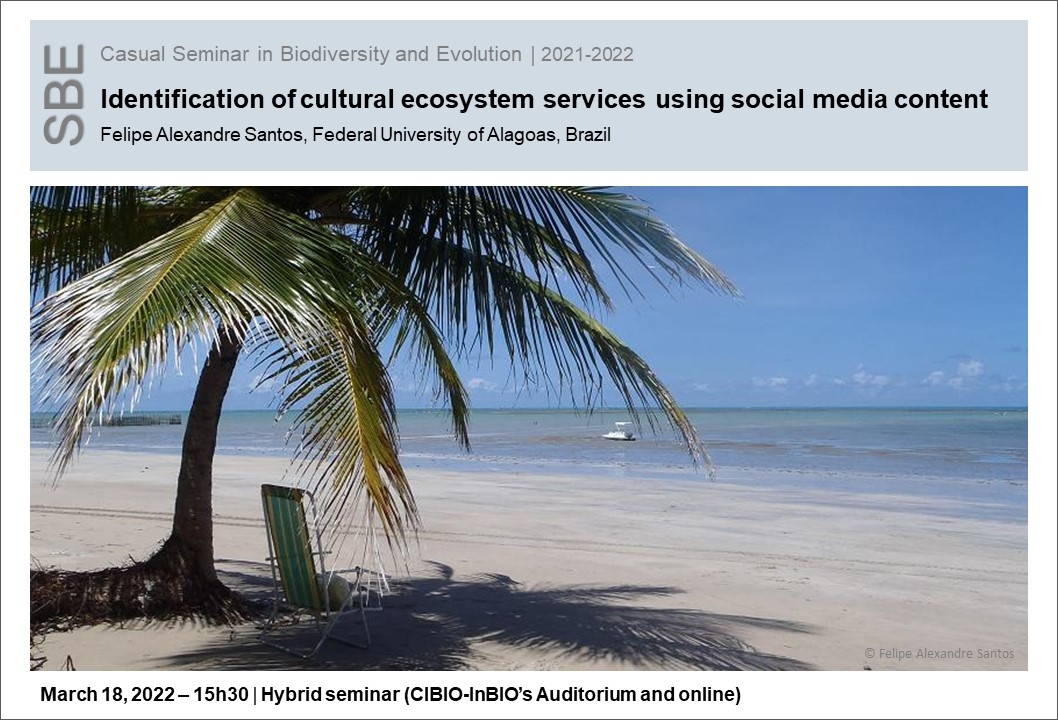Identification of cultural ecosystem services using social media content
18 Mar 2022 - Felipe Alexandre Santos, Federal University of Alagoas, Brazil | 15h30

CASUAL SEMINAR IN BIODIVERSITY AND EVOLUTION
Cultural ecosystem services (CES) are the non-material contributions that people receive from nature and are generally challenging to measure and map. In this study, we downloaded thousands of social media photographs taken across more than 8.500km of a tropical coastline and used machine learning to analyze their content and identify CES. We were able to identify and map 5 categories of CES and compared CES counts and richness between sustainable use areas, strictly protected areas and non-protected areas. We found that strictly PA had more counts and richness of CES when compared with areas under lower categories of protection. While not all CES categories can be adequately captured using this approach it can provide crucial information for local management and has proven extremely fast and cheap if compared with traditional methodologies such as face-to-face interviews. We hope that advances in computer vision algorithms will allow an even more accurate identification of CES in the near future.
Felipe is a biologist with interest in combining machine learning techniques with more traditional methods (i.e. questionnaires) to unveil cultural ecosystem services and value generating practices to inform protected areas management. His master's was focused on assessing the cultural services provided by the Brazilian coast to its users through the content analysis of geo-tagged Flickr photographs. Felipe is conducting his PhD at Federal University of Alagoas with focus on exploring how protected areas can contribute to human well-being. He is also a member of the Long-Term Socio-Ecological Research of the Coral Coast Marine Protected Area (northeast Brazil). He is currently funded by the Brazilian Coordination for the Improvement of Higher Education Personnel (CAPES).
[Host: Richard Ladle, 21st Century Conservation Lab - LACOS21]